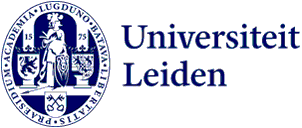360 zoekresultaten voor “data science research programme” in de Medewerkerswebsite
-
Onderzoeksprogramma Data Science
Universiteiten, bedrijven, organisaties en samenlevingen krijgen steeds meer te maken met enorme hoeveelheden data. Het is een grote uitdaging om deze Big Data te transformeren tot kennis. De Universiteit Leiden heeft daarom een universiteitsbreed onderzoeksprogramma Data Science in het leven geroep…
-
Data Carpentry with R for Social Sciences and Humanities
Workshop
-
The Dual Career Programme (DCP)
Leiden University offers a Dual Career Programme (DCP) to assist the life partners of new academic staff (on pay-roll) in finding employment in The Netherlands. The programme is offered in close cooperation with nearby universities of Delft and Rotterdam.
-
OSCoffee: Building a data competence center for Population Health Management
Lezing
-
 Marta Fiocco
Marta FioccoWiskunde en Natuurwetenschappen
m.fiocco@math.leidenuniv.nl | +31 71 527 7144
-
 Gino Bertrand Kpogbezan
Gino Bertrand KpogbezanWiskunde en Natuurwetenschappen
g.b.kpogbezan@math.leidenuniv.nl | +31 71 527 7109
-
 Kevin Duisters
Kevin DuistersWiskunde en Natuurwetenschappen
k.l.w.duisters@math.leidenuniv.nl | +31 71 527 2727
-
 Jelle Goeman
Jelle GoemanFaculteit Geneeskunde
j.j.goeman@lumc.nl | +31 71 526 9700
-
 Peter Grünwald
Peter GrünwaldWiskunde en Natuurwetenschappen
pdg@math.leidenuniv.nl | +31 71 527 2727
-
 Laura Zwep
Laura ZwepWiskunde en Natuurwetenschappen
l.b.zwep@lacdr.leidenuniv.nl | +31 71 527 2727
-
 Thijs Bos
Thijs BosWiskunde en Natuurwetenschappen
j.m.bos@math.leidenuniv.nl | +31 71 527 2727
-
Data stewards
Heb je vragen over data management? Neem contact op met de data stewards:
-
Research Support Network
Het Leiden Research Support Network is hét netwerk voor research support professionals van de Universiteit Leiden waarin de collega's vanuit de facultaire (virtuele) Research Support Offices en expertise eenheden met elkaar samenwerken en kennis delen om onderzoekers te ondersteunen bij hun onderzoe…
-
 Dirk van der Hoeven
Dirk van der HoevenWiskunde en Natuurwetenschappen
d.van.der.hoeven@math.leidenuniv.nl | +31 71 527 7146
-
Leiden Research Support Network
Het Leiden Research Support Network is hét netwerk voor research support professionals van de Universiteit Leiden waarin de collega's vanuit de facultaire (virtuele) Research Support Offices en expertise eenheden met elkaar samenwerken en kennis delen om onderzoekers te ondersteunen bij hun onderzoe…
-
Research Support Portal
Op de Research Support Portal leer je hoe de portal werkt en vind je informatie over onderzoekondersteuning binnen Universiteit Leiden. De portal dient als een wegwijzer voor onderzoekers tijdens alle fasen van (extern gefinancierde) onderzoeksprojecten. Voor iedere fase van het onderzoek is er waardevolle…
-
Teamleider Research Support
ICT Shared Service Centre
-
 Richard Gill
Richard GillWiskunde en Natuurwetenschappen
gill@math.leidenuniv.nl |
-
 Rob Tijdeman
Rob TijdemanWiskunde en Natuurwetenschappen
tijdeman@math.leidenuniv.nl | +31 71 527 4831
-
Programma Leiden Research Support (LRS)
Binnen het programma Leiden Research Support is samen met onderzoeksondersteuners en onderzoekers gebouwd aan de versterking van de onderzoeksondersteuning voor onderzoekers.
-
SAVE THE DATE: Open Science Week 2024
Festival
-
Afdelingshoofd Applicaties & Research Support
ICT Shared Service Centre
-
Leiden Research Support Network Webinar: Budgeting for Non-Budgeters & Project Managers
Webinar
-
 Wouter van Loon
Wouter van LoonFaculteit der Sociale Wetenschappen
w.s.van.loon@fsw.leidenuniv.nl | +31 71 527 2727
-
 Max van Haastrecht
Max van HaastrechtWiskunde en Natuurwetenschappen
m.a.n.van.haastrecht@liacs.leidenuniv.nl | +31 71 527 4799
-
OSCoffee: Open Science and AI - Synergy or Contradiction
Lezing
-
Communication in Science for PhDs (from Science and LUMC)
Communicatie, Onderzoek
-
Science Skills Platform
Het Science Skills Platform is een veelzijdige, digitale vaardighedenleeromgeving voor alle docenten en studenten van de Faculteit der Wiskunde en Natuurwetenschappen. Met de ruim 100 aanwezige vaardigheidsmodules kunnen studenten waar en wanneer ze maar willen vaardigheden trainen die ze tijdens hun…
-
Mariëlle Linting
Faculteit der Sociale Wetenschappen
linting@fsw.leidenuniv.nl | +31 71 527 4098
-
 Julian Karch
Julian KarchFaculteit der Sociale Wetenschappen
j.d.karch@fsw.leidenuniv.nl | +31 71 527 3493
-
 Frank Takes
Frank TakesWiskunde en Natuurwetenschappen
f.w.takes@liacs.leidenuniv.nl | +31 71 527 7143
-
Workshop: How to write a Data Management Plan (DMP)
Workshop
-
Workshop: How to write a Data Management Plan (DMP)
Workshop
-
IMPACT with science communication
Communicatie, Outreach
-
OSCoffee: How to take your next step in the path to open science
Lezing
-
 Wessel Kraaij
Wessel KraaijWiskunde en Natuurwetenschappen
w.kraaij@liacs.leidenuniv.nl | +31 71 527 5778
-
 Barend Mons
Barend MonsFaculteit Geneeskunde
b.mons@lumc.nl | +31 71 526 9111
-
Scientific Conduct for PhDs (Science)
Onderzoek
-
SAVE THE DATE: Open Science Week 2024 op de Faculteit Archaeologie
Festival
-
SAVE THE DATE: Open Science Week - op de Faculteit van Sociale Wetenschappen
Festival
-
SAVE THE DATE: Open Science Week 2024 op de Faculteit Geesteswetenschappen
Festival
- Week of Indonesia-Netherlands Education and Research (WINNER)
-
Writing an excellent research grant proposal for PhDs and postdocs
Onderzoek
-
Onderwijs bij de Faculty of Science
Welkom op de website van SEEDS (Science E-learning and Educational Development Support)! Op deze pagina vind je informatie, tips en tricks voor het geven van onderwijs bij de faculteit W&N en verwijzen we je door naar andere relevante universitaire websites. Per onderwerp (links in het menu) kom je…
-
Workshop Verbeter je toets(vragen) met psychometrische data
Didactiek, Didactiek
-
Science for Sustainable Societies: een nieuwe bacheloropleiding
De nieuwe interdisciplinaire bacheloropleiding Science for Sustainable Societies start vanaf het studiejaar 2025-2026
-
Uitbreiding mogelijkheden Research Support Portal
Onderzoek
-
Academic outreach: an introduction to sharing your research via social and conventional media
Communicatie, Outreach
-
 Cor Veenman
Cor VeenmanWiskunde en Natuurwetenschappen
c.j.veenman@liacs.leidenuniv.nl | +31 71 527 5772
-
 Akrati Saxena
Akrati SaxenaWiskunde en Natuurwetenschappen
a.saxena@liacs.leidenuniv.nl | +31 71 527 2727
